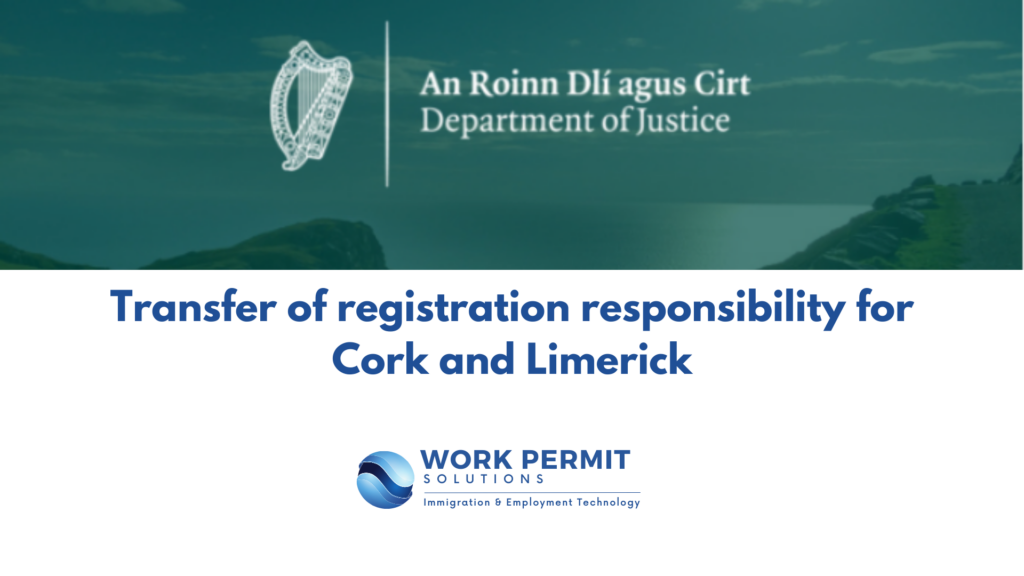As always, I extend my sincere gratitude to every subscriber, visitor, and reader who has immersed themselves in this newsletter.
This is a topic I have long desired to address. The complexities of the immigration and employment permit system and its various components can be daunting. For company directors, managers, and HR personnel, understanding these intricacies is vital, as they directly affect your workforce and operational efficiency.
The Immigration Service Delivery (ISD), formerly known as the Irish Naturalisation and Immigration Service (INIS), has always been tasked with handling immigration matters. This might seem redundant, but its importance will become clear as the story unfolds. Due to an overwhelming influx of requests, demands, and applications, the ISD had to decentralise some of its operations from Dublin to local offices, appointing the Garda National Immigration Bureau (GNIB) as the optimal unit to execute these functions.
To clarify, the ISD and GNIB are not synonymous. Each has distinctly defined roles, obligations, principles, and purposes. Nevertheless, a significant transfer of responsibility and authority to the GNIB occurred due to the ISD’s insufficient manpower to meet the burgeoning demand. Until recently, all first-time registrations for non-EEA nationals and all permission renewals were processed at local Garda stations throughout Ireland, with Dublin-based applicants being the sole exception.
For those who may be unfamiliar with permissions, stamps, permits, IRP/GNIB cards, and visas, please visit my YouTube page.
Here is a brief overview of each department’s functions:
GNIB: Responsible for arrest, search, investigation, detention, and deportation. The GNIB has historically served as the enforcement arm of immigration.
ISD: Oversees nearly all aspects apart from enforcement, including frontline border and passport control, daily immigration operations, and decision-making. The ISD is divided into several sub-units, including, but not limited to:
- Spouse of Irish National Unit (SINU/SOIN)
- Border Management Unit (BMU)
- EU Treaty Rights Unit (and the EU Treaty Rights Review Unit)
- Repatriation Division
- Citizenship Division
- Domestic Residence and Permissions Unit (DRP)
Why has there been a shift in responsibilities?
Politically, this shift may be framed as “the rollout of efforts to centralise immigration functions.” However, I believe the reasoning is broader. In my view, the rationale is twofold: the substantial volume of complaints from individuals experiencing potentially adverse encounters at GNIB meetings, and ministerial pressure to reassign officers to functions that align with their designated responsibilities.
On the 8th of April 2024, GNIB offices in Meath, Kildare, and Wicklow, responsible for registrations and renewals, were transferred to the ISD. Cork and Limerick are set to follow suit from the 8th of July onwards.
This development is welcome news to many IRP cardholders, who anticipate shorter appointment waiting times—some of which currently exceed 25 weeks.
Despite the positive outlook, one must consider whether this transition will truly be effective, given that the DRP (Domestic Residence and Permissions Division) currently takes up to six months to process applications. Such delays leave non-EEA nationals in a state of limbo and constant fear. As an agent who encounters these scenarios daily, I fervently hope this transfer of responsibilities yields positive outcomes for those who need it most.
For context, non-EEA nationals often fall through the cracks of immigration and employment permit frameworks for various reasons, including exploitation. Consider a scenario where a non-EEA national begins employment at a company and, after four months, is dismissed abruptly. As they are still within probation, they have no recourse to WRC channels. Their employment permit is then cancelled, rendering them undocumented (no permission to be in the State). While there are potential avenues for redress, many in such situations go unnoticed, which is deeply troubling.
Several High Court cases have arisen from such circumstances, including Hossain v Minister for Business, Enterprise and Innovation [2021] IEHC 152, Ling and Yip Ltd v Minister for Business, Enterprise and Innovation [2018] IEHC 546, and P v the Minister for Business, Enterprise and Innovation [2021] IEHC 609.
It is my sincere hope that this system will operate effectively. If successful, many individuals who contribute to our society in silence will be able to regularise their immigration status and live without the constant fear and anxiety that currently burdens them.
Ireland’s immigration system is progressing in leaps and bounds. For company directors, managers, and HR personnel, these changes represent more than administrative adjustments—they have significant implications for your employees and business operations.
By staying informed and understanding these developments, you can better support your employees and ensure compliance with the evolving immigration landscape.

